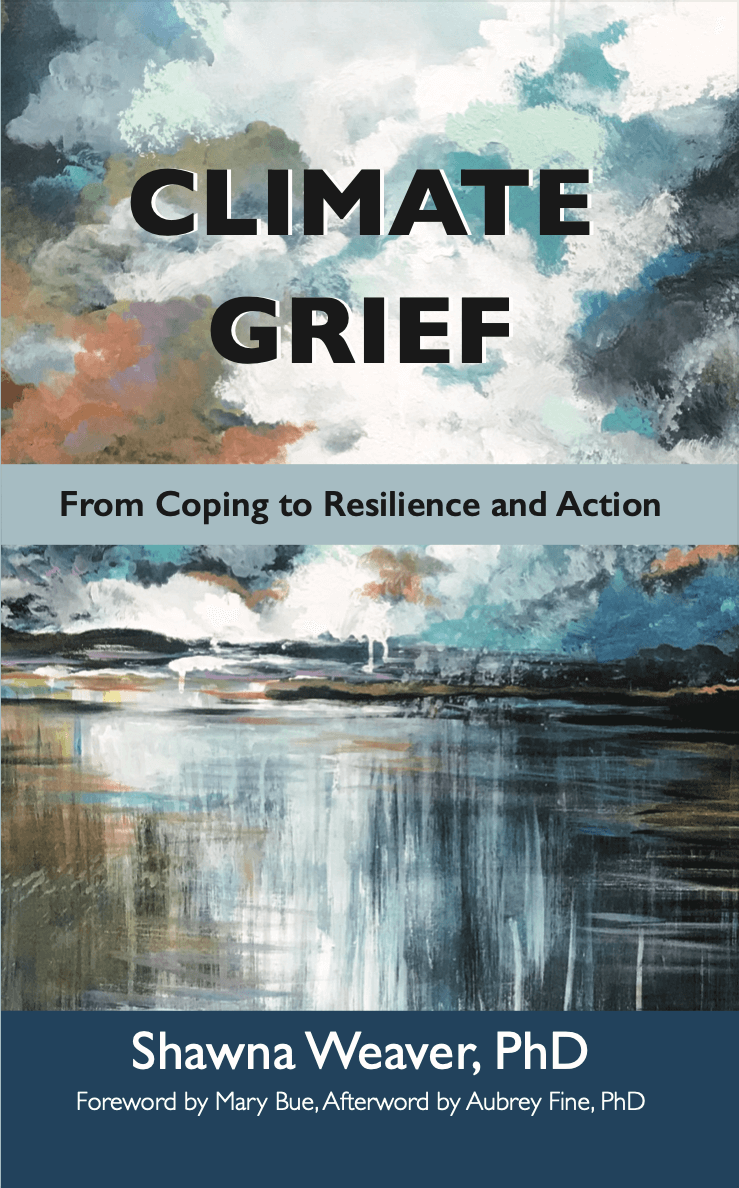
Shawna Weaver, Author of Climate Grief: From Coping to Resilience and Action, will speak at Lake Superior Freethinkers on Sunday, July 7th at 10am.
Seldom do you spot such diverse perspectives represented in a book. Shawna Weaver’s 2023 work, Climate Grief: From Coping to Resilience and Action, reflects the fact that Shawna has been around. A couple of chapters in I began to notice the almost circular scope of perspective on this topic of climate.
The journey is long; we change and grow in ways that are more like walking through a labyrinth than running down a straight road.
Weaver earned a PhD in Sustainability Education, runs marathons, enjoys a plant-based diet, is a musician in Duluth, MN, and teaches in environmental education. These are pieces of her life and experience that you feel support this book because she isn’t only talking about it, but lives and feels it.
I learned two new expressions straight away from Weaver’s research and practice. Ecopsychology is that field of study where Weaver draws from the intersection of how we relate to our environment and how our behavior toward our planet impacts human life experience. Ecotherapy is that unique brand of psychotherapy that she has developed in which her practice with clients occurs in natural settings and experiences. Ecotherapy faces the grief where the grief dwells.
Weaver doesn’t explain our climate grief experiences away. Those of us living in Northern Minnesota know that we don’t live in a climate refuge as many outsiders claim. It’s a delicate and unique place. We know it’s changing: the lake is warming, ticks have arrived where they never were before, and white-tailed deer abound.
It’s not the same.
The most inspiring change-makers among us are those who keep learning and changing as they learn. They refuse to preserve a problematic status quo.
Weaver takes us on a tour of natural and oh-so-common biases and binary thinking and how when favored they lock us into a vortex of personal and social self destruction. There are ways to break free when we can see ourselves as we really are.
Any conversation about grief would be lacking without investigation of the work of Elisabeth Kübler-Ross. The stages of grief are denial, anger, bargaining, sadness, and acceptance. And Weaver adds one, the work of David Kessler, a practical and natural stage of meaning-making.
The secret to a healthy, happy life is figuring out how to live well in spite of and within a heavy and uncertain world.
I began to notice while working through the chapters on grief stages that I wasn’t only examining my own experiences with grief about climate change, but many other areas of my life where I may have checked out of the grief process or perhaps never even noticed that I was grieving.
The book is practical. Anyone can find a strategy that will suit them right where they’re at. Shawna invites you to start where you are, care for yourself and become involved in some way that is natural to you. I felt hopeful even though the tempest is already upon us.
I felt sad many times reading Climate Grief. Surprisingly, it wasn’t a bad sadness. It’s a sweet sadness that allows me to care for myself, and in caring, I’m caring for my community and climate as well. We all benefit when we respect our grief.
